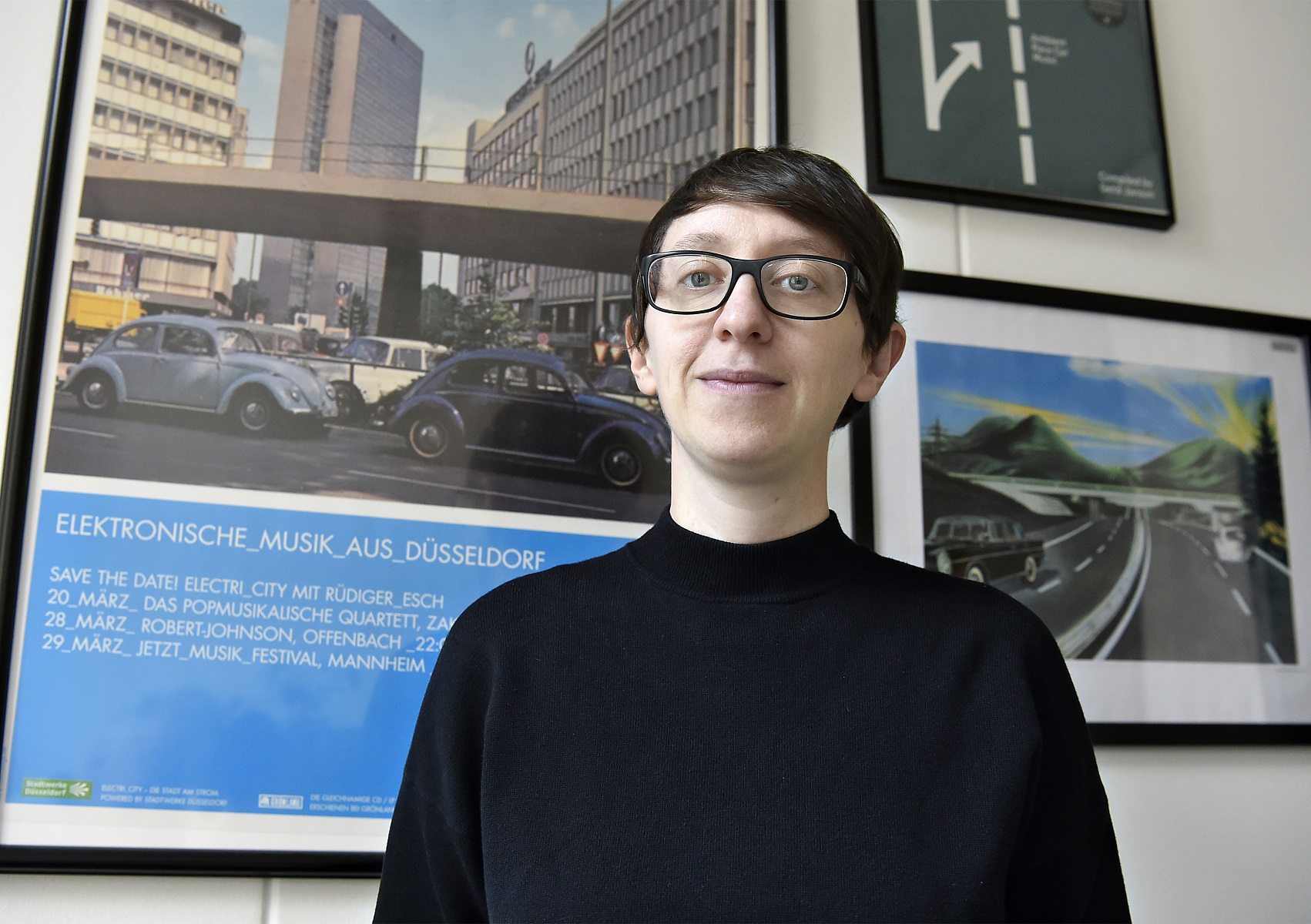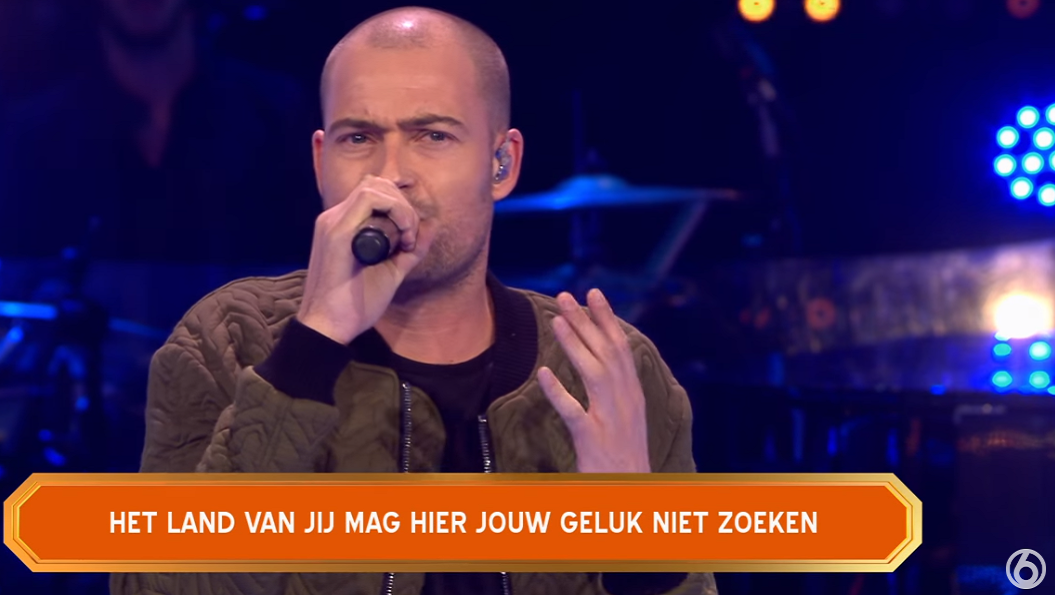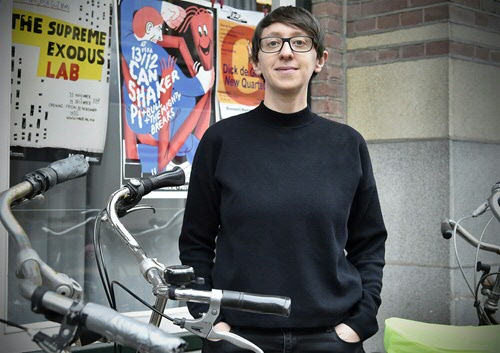Populisme bestormt de hitlijsten

De Top 2000-tijd breekt weer aan: sommigen haten de uitzending, voor anderen mag het nog wel langer duren. De samenstelling van deze lijst ‘beste’ popnummers is onlosmakelijk verbonden met lobby’s om nummers hoog in de lijst te krijgen. Waarom vinden we dat zo belangrijk? Omdat muziek veel meer is dan gewoon vermaak. Het is een manier waarop we onze identiteit proberen vast te stellen, zegt Melanie Schiller, die onderzoek doet naar populaire muziek. Hoog tijd daarom om muziek serieus te nemen als onderdeel van het culturele en politieke debat.
Tekst: Nynke Broersma, Communicatie RUG, foto’s : Elmer Spaargaren
Melanie Schiller is altijd al gefascineerd geweest door de grote rol die populaire cultuur speelt in ons leven. En dat groeit alleen maar als ze begin 2000 Media en cultuur studeert aan de Universiteit van Amsterdam. Maar tijdens de studie is er weinig aandacht voor Schillers persoonlijke passie: muziek. ‘Dat heeft natuurlijk deels te maken met de specialiteit van docenten aan een universiteit. Maar ik vond het jammer, en ergens ook wel vreemd, want muziek is altijd overal. En iedereen identificeert zich er op een bepaalde manier mee. Toch wordt het niet altijd serieus genomen. Neem bijvoorbeeld Schlager-muziek. In de tweede helft van de jaren ‘40, toen Duitsland bezet werd door de geallieerden, werden kunstvormen als literatuur en theater gecensureerd en gecontroleerd. Schlager daarentegen werd gezien als vermaak, maar niet als iets wat mogelijk ondermijnend kon werken.’
Trots om Duits te zijn
Dat een Duitse muziekstroming Schillers eerste voorbeeld is is niet verwonderlijk. Haar interesse voor de relatie tussen muziek en identiteit begon namelijk bij een gebeurtenis in Duitsland. ‘Begin 2000 woedde daar een hevige discussie over de invoering van een quotum voor nationale muziek op de radio. Dat riep vragen op die over meer dan muziek gingen. Moeten we over onze schaamte heen stappen en weer trots zijn om Duits te zijn? Moeten we ons beschermen tegen Anglo-Amerikaanse invloed? Eigenlijk ging het dus over: wat betekent het om Duits te zijn?’ Het bleek zo’n rijk onderwerp dat een promotie volgde, en dit jaar een boek. In Soundtracking Germany laat Schiller aan de hand van voorbeelden zien hoe de Duitse identiteit ‘constructed’, ‘challenged’ en ‘re-affirmed’ werd in zeventig jaar naoorlogs Duitsland.

Ophef over het Koningslied
Constructed, challenged en re-affirmed zijn abstracte termen, maar met een voorbeeld komt het een stuk dichterbij. ‘Neem de enorme ophef over het Koningslied. Representeert ons dat wel? En wie zijn wij dan? Of Het Land Van, van Lange Frans en Baas B. Van dat laatste nummer is twee jaar geleden een nieuwe versie uitgebracht met een andere tekst, die een heel ander beeld laat zien van Nederlands-zijn’, zegt Schiller. ‘Muziek wordt op die manier een uiting van nationale identiteit, maar ook een manier om die identiteit te betwisten, te beïnvloeden en op een andere manier te representeren.’
Populisme verspreiden
Het opkomende populisme in Europa is Schillers nieuwe onderzoeksterrein. Met een team van internationale onderzoekers kijkt zij hoe muziek een rol speelt in het verspreiden en mainstreamen van populistische ideologieën in vijf Europese landen. ‘Er zijn al langere tijd subculturen die via hun muziek populistische ideologieën verspreiden, bijvoorbeeld nazirock. Maar sinds kort vind je die ideeën ook in muziek met een meer mainstream geluid, en die nummers komen ook in de hitlijsten terecht. Het staat niet meer aan de rand van, maar midden in de samenleving.’ Maar dat wordt niet gereflecteerd in het debat over populisme. ‘Onderzoek gaat nu nog vooral over de politieke en economische dimensie. Terwijl de culturele dimensie vaak niet serieus genomen wordt of genegeerd wordt. En dat vinden we problematisch.’

De emotionele kracht van muziek
Waarom is het problematisch dat muziek nu nog geen onderdeel is? ‘Muziek gaat vaak over veel meer dan tekst of melodie. Het brengt mensen samen, waardoor ze zich onderdeel voelen van een gemeenschap. Het is een heel goed medium om mensen aan te spreken en ze het idee geven dat vertegenwoordigd zijn. Zelfs als je niet heel expliciet naar teksten luistert en zelfs als je je niet identificeert met een nummer raakt muziek je, of je nou wilt of niet.’ Muziek heeft een sterke emotionele kracht, wil Schiller zeggen. Een kracht waar politici gretig gebruik van maken.
Born In The USA
Niet alleen gebruiken politici muziek om hun politieke boodschap te verspreiden, maar ook om mensen te bereiken en te laten zien dat zij wél namens het volk spreken. Een nummer hoeft daarvoor niet eens specifiek populistisch te zijn, stelt Schiller. ‘De Alternative für Deutschland (AfD) gebruikte het nummer Wir Sind Wir tijdens verkiezingscampagnes. Daarmee probeerden ze te appelleren aan het idee van een eensgezinde en essentialistische Duitse nationaliteit. Dat Wir Sind Wir is uitgebracht lang voor de AfD überhaupt bestond maakte hen niet uit.’ Het bekendste voorbeeld is misschien wel Born In The USA van Bruce Springsteen. Een nummer dat Reagan graag voor zijn verkiezingscampagne had willen gebruiken, ware het niet dat Springsteen bezwaar aantekende. ‘Born In The USA is een klassiek voorbeeld van hoe muziek allerlei lagen heeft. Geluid, melodie, tekst, video, performance. Het lijkt op het eerste gezicht een pro-Amerikaans lied, maar als je verder kijkt blijkt dat het juist ironisch of ondermijnend bedoeld is.’
(tekst loopt door onder video)

Grote kans dat Born In The USA ook dit jaar weer in de Top 2000 staat. Zouden de stemmers nadenken over al die lagen? Of zien ze het gewoon als een lekker nummer? En kiezen ze bewust voor Het Land Van omdat het voor hen Nederlands-zijn representeert? Wat de antwoorden ook zijn, Schillers onderzoek nodigt uit om stil te staan bij de vragen als je tussen Kerst en Oud en Nieuw een keur aan popnummers voorbij hoort komen.
Meer informatie
- Melanie Schiller
- Paul van Dyk & Peter Heppner - Wir Sind Wir (muziekvideo)
Meer nieuws
-
14 februari 2026
Tumor weg, maar waar zijn de woorden?
-
19 januari 2026
Digitalisering drijft kansarme burgers soms in het nauw
